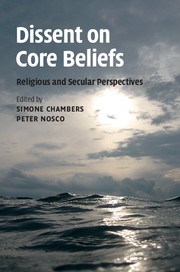Peter Nosco
Research Area
About
Current Activities
Individuality in Early Modern Japan
Thinking for Oneself








From Renaissance Quarterly 72:2 (Summer 2019), pp. 644-45.
In this welcome addition to the revisionist scholarship on the history of premodern Japan, Nosco analyzes the development of individuality in early modern Japanese society, challenging the traditional, stereotypical image of Tokugawa Japan (1603–1868) as a backward feudal society dominated by the repressive Bakufu regime. Aiming “to rehabilitate the host of counter-ideological and countercultural values” and “to resurrect the individuality that was so prominent a feature of mid- and late Tokugawa society” (8), Nosco explores a wide range of sources, including novels by Ihara Saikaku (1642–93), writings of independent-minded female author Tadano Makuzu (1763–1825), narratives of the state persecution of a Buddhist movement, and a statement of protest composed by an eighteenth-century villager. What is revealed is a vibrant culture of nonconformity, which prompted Carl Peter Thunberg (who stayed in Japan 1775– 76) to write, “Liberty is the soul of the Japanese” (58)….
Offering a wealth and variety of material, Nosco successfully presents how the early modern Japanese expressed their individuality to a far higher degree than is recognized in traditional studies. Any future study on early modern Japan will be required to consider the power and the richness of these radical, nonconforming voices expressed through diverse means….
Ken Kurihara, Miyagi Gakuin Women’s University
Values, Identity, and Equality in Eighteenth- and Nineteenth-Century Japan








From Monumenta Nipponica 72:1 (2017), pp. 105-109.
“Considering the quality of each essay, the volume under review is undeniably a major publication in the field of social and cultural history of early modern and modern Japan.” Annick Horiuchi, Université Paris Diderot.
From The Journal of Japanese Studies 45:1 (Winter 2019), pp. 139-144.
“The collection of essays that Peter Nosco, James Ketelaar, and Yasunori Kojima have assembled in this volume will disorient most, surprise many, and hopefully inspire a few. For what it’s worth, the editors and authors can surely count me among those who read this volume with mounting excitement…. [T]his volume explicitly abandons the temptation of antiquarianism and uncritical archival reproduction and boldly addresses very big questions: How can we understand “values,” “identity,” “equality,” and—absent from the title but the real thread linking all essays—”individualism,” as well as the constellations of concepts and practices these notions mobilized in early modern Japan?
…. The methodological eclecticism and thematic variety of this collection of essays promise to give visibility to this volume; its experimentalism is indeed an appropriate strategy to encourage young scholars to engage with “big questions” in the current predicament of theoretical inertia…. I ardently hope the book finds a wide readership among undergraduate and graduate students worldwide, as I am sure it will inspire new investigations and new theoretical reflections. The Nietzschean untimeliness of this project is a plea to young scholars to never shy away from big questions.” Federico Marcon (Princeton University)
Dissent on Core Beliefs: Religious and Secular Perspectives




From Journal of Law and Religion 31:2 (July 2016). Review essay “APOSTASY THROUGH DOUBT AND DISSENT”
“In their edited volume on dissent in world religious and secular traditions, Simone Chambers, Peter Nosco, and the volume’s contributors shift attention from the moral and legal problem of apostasy to the ethics of dissent. It is a problem that goes far deeper than the validity of mere doctrine. In his study of apostates, Simon Cottee observes, “there can be no doubt that apostasy is a moral problem” (10). This dovetails well with Chambers’s and Nosco’s framing of dissent as an ethical problem going to the heart of communities and their common life….
What seems important to observe is that these issues of dissent, like doubt and apostasy, are not going away anytime soon. With the advent of what has been described as a global resurgence of religion, there has also been an increase in knowledge of other religions, competition between religions, and sharpened orthodoxy and orthopraxy in many cases in the quest to win souls…. The three books discussed here are excellent contributions to those ongoing discussions. We are living in a world in which the ancient concerns of Plato and Augustine seem a long timeago and very far away, but concerns for unity, harmony, change, and the ever-presentpossibility of falling into chaos, such as the black-flagged hole of the Islamic State are very real possibilities today and will continue to demand our attention for the foreseeable future.”
By M. Christian Green, Center for the Study of Law and Religion, Emory University
Research interests
I study the intellectual and social history of seventeenth- and eighteenth-century Japan, with published work on Confucianism, nativism, popular culture, underground religious movements, and most recently public sphere.
Educational Background
Columbia University BA Oriental Studies 1971
University of Cambridge BA Japanese Studies 1973
University of Cambridge MA (honorary) 1977
Columbia University PhD Japanese Thought 1978
Research
Current research
I’m currently working on two projects: 1) serving as guest editor for a special issue of Japanese Journal of Religious Studies on the theme of the contributions of religions and religious ideas to post-1945 Japanese identity; and 2) a comparative study of the Confucian Rai San’yō (1780-1832) and the nativist Date Chihiro (1802-77).
Publications
Major publications
(Trans.) Some Final Words of Advice (Saikaku oritome) by Ihara Saikaku (1642-93), (Rutland VT and Tokyo: Charles E. Tuttle, 1980).
(Ed.) Confucianism and Tokugawa Culture. Second (revised) edition (Honolulu: University of Hawaii Press, 1996.)
Remembering Paradise: Nativism and Nostalgia in 18th-Century Japan, Harvard-Yenching Institute Monograph Series (Cambridge, Mass., and London: Council on East Asian Studies, Harvard University, 1990).
(Ed.) Japanese Identity: Cultural Analyses (Denver: Center for Japan Studies [distributed by University of California Press], 1997).
Edo shakai to kokugaku: gengô e no kaiki, tr. William Steele, Kojima Yasunari, et al., (Tokyo: Perikansha, 1999)
(Co-guest editor with Mark R. Mullins) Special issue of Japanese Journal of Religious Studies (34:1) on the theme of Christians in Japan (2007).
Most recent Publications
Nihon no Tokugawa jidai ni okeru shoki kindaisei: shudanteki aidentitei oyobi kojinshugi (“Early Modernity in Japan’s Tokugawa Period: Collective Identity and Individuality”), in 21 Seiki paradaimu shifuto—Nihon no kokoro to katachi no kensho to kozo, Tokyo: Toji Shobo 2007.
“Buddhist Perspectives on the Globalization of Ethics,” Ch. 5 (pp. 75-92) in William M. Sullivan, ed., The Globalization of Ethics, Ethikon Series in Comparative Ethics (Cambridge: Cambridge Univ. Press 2007)
“Intellectual Change in Early Modern Japan,” Ch. 6 (pp. 101-116) in William Tsutsui, ed., Blackwell Companion to Japanese History (2007).
“The Experiences of Christians during the Underground Years and Thereafter,” pp. 85-98 in The Japanese Journal of Religious Studies 34:1 (2007)
“Confucian Perspectives on Poverty and Morality,” Ch. 6 (pp. 115-33) in Peter Hoffenberg and William Galston, eds., Poverty and Morality, Ethikon Series in Comparative Ethics, Cambridge Univ. Press, 2010.
“The History of Confucianism in Japan,” Ch. 3 (pp. 53-66) in Wonsuk Chang and Leah Kalmanson, eds. Confucianism in Context: Classic Philosophy and Contemporary Issues, East Asian and Beyond, SUNY Press’ series in Chinese Philosophy and Culture, 2010.
